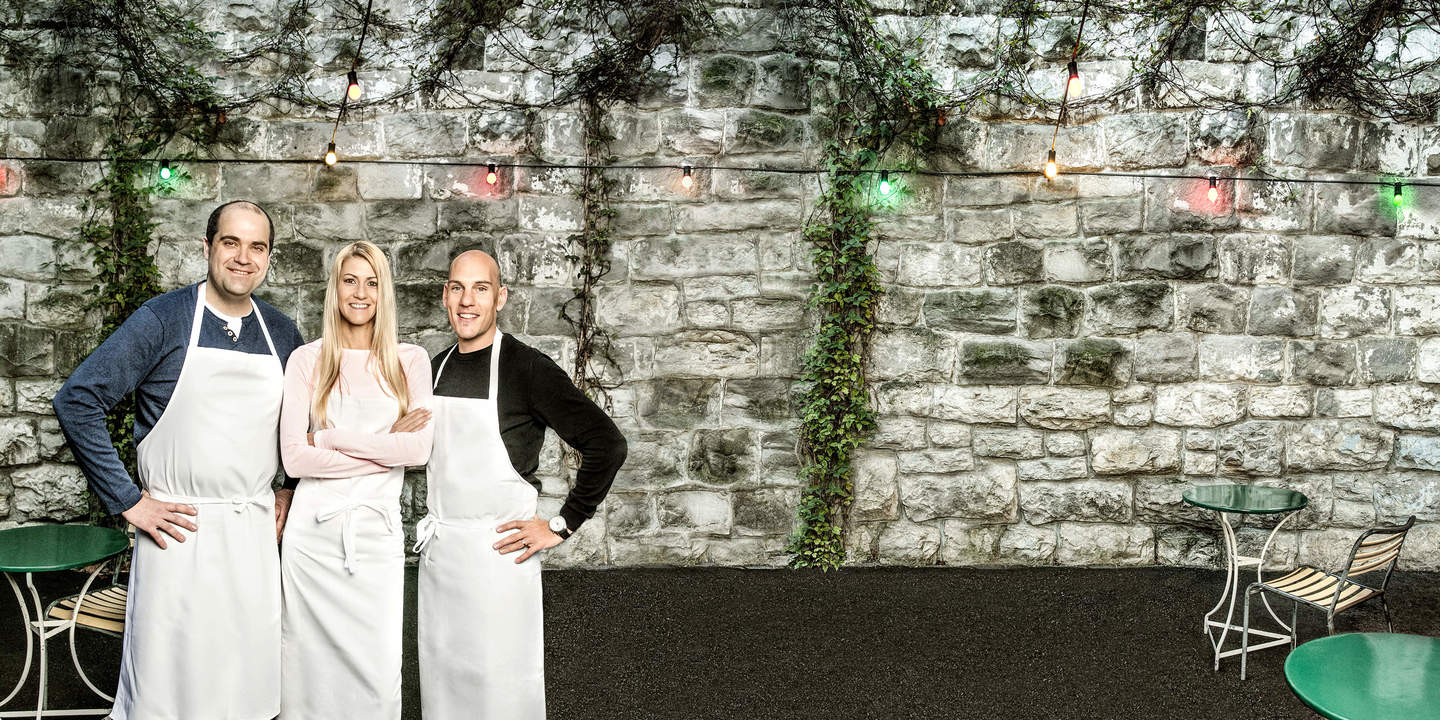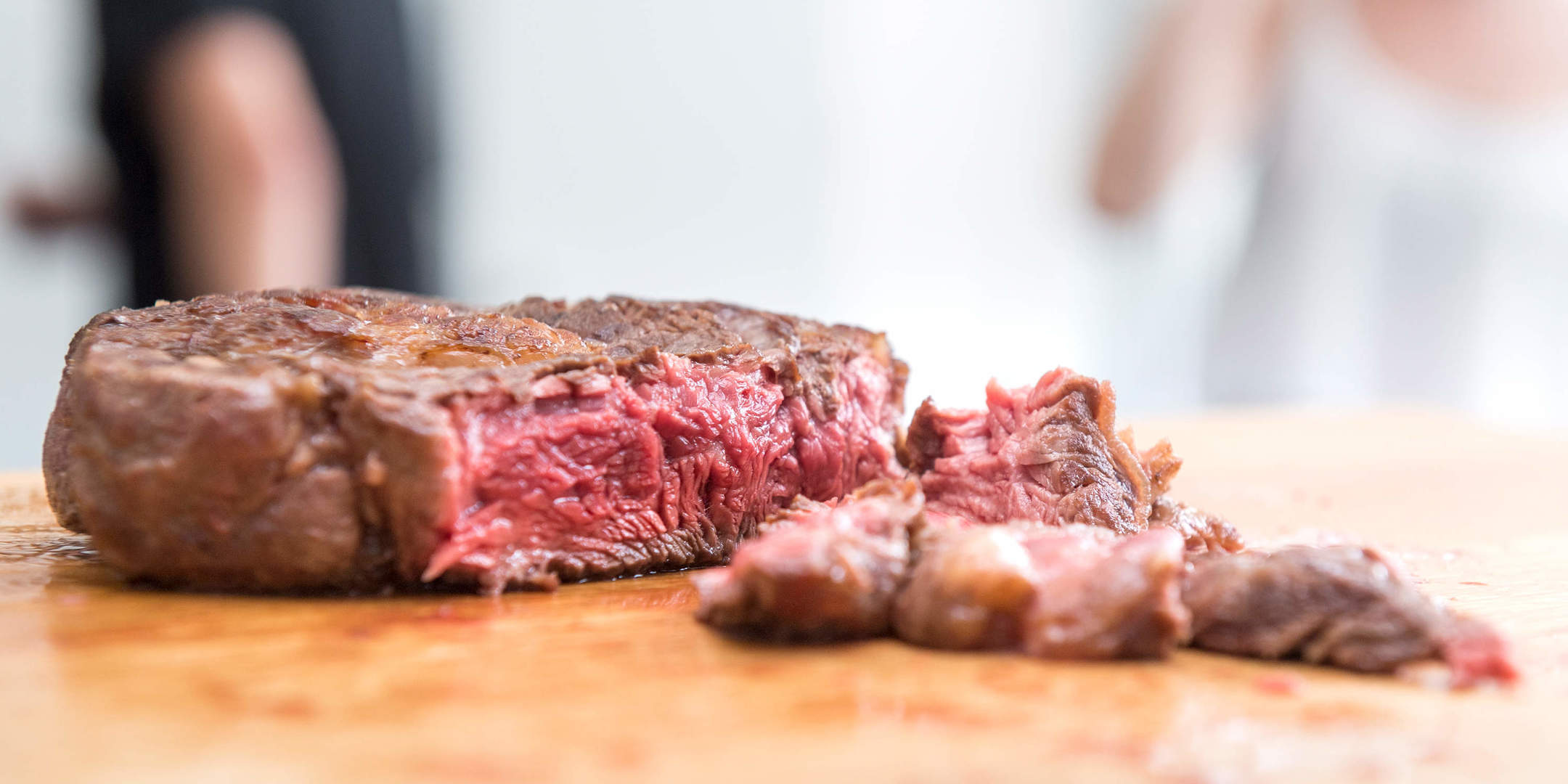The Bell Food Group moves forward as one
The name Bell Group was formally changed to the Bell Food Group in April 2017. The new name is the logical consequence of the strategy pursued in recent years, during which the company has developed from a Swiss meat processor to an international specialist in fresh food produce These changes are nothing new for the company, however. The Bell Food Group’s history is dominated by visionary leaders and their decisions, which have brought the company to where it is today.
It all started in 1869 when Samuel Bell opened a small butcher's shop in the inner city of Basel. Just one of many of the same kind of establishment back in those days. The meat was sold in the shop, while the animals were slaughtered and processed right next door. But Samuel Bell was a visionary businessman who soon set his sights on future growth. The decision to separate production and sales was an important condition for this growth. Samuel Bell opened a new production facility on the outskirts of the city and sent his sons abroad to learn how to make charcuterie.
From 1907, Samuel Bell focused on developing his artisan butcher's business into a large-scale producer of meat and sausage products. Just a few years later, Bell already had 130 branches throughout Switzerland.
Another milestone was reached in 1913 when Bell entered into a cooperation agreement with the VSK, today's retailer Coop, and thereby secured the continuing existence of the company. This finally confirmed Bell's position as the biggest meat and sausage operation in Switzerland. The network of branches reached its zenith in 1962 with 172 sales outlets. In 2004, Bell parted company with the butcher's shops when the then Executive Board decided to focus totally on production in the future.
Entry into the convenience business
When consumer habits started changing during the boom years following the Second World War, Bell's Executive Board once again demonstrated its flair for identifying promising future business areas at an early stage. The products offered in Bell's sales outlets were constantly adapted to people’s growing affluence. Bell was one of the first companies to offer prepared meals, salads and sandwiches along with meat and charcuterie in its sales outlets. What was still called "delicatessen" in those days is now known as "convenience", one of the most popular and fastest growing business segments in the food sector.
Bell soon also set its sights on growth in the convenience segment and – as before with meat processing – built up its own centralised production facility in Schaffisheim. Under the cooperation agreement with Hilcona, also a pioneer in the convenience segment, this facility passed to Hilcona in 2011, in return for which Bell received 49 percent of Hilcona's shares. Cooperation with Hilcona was subsequently expanded step by step and the company is now wholly owned by the Bell Food Group.
Growth through acquisitions in Switzerland and abroad
Bell made its first major acquisition to mark its 100th anniversary in 1969, when it took over the company Grieder AG in Oensingen (Switzerland). From the end of the 1990s onwards, this was followed by many other takeovers at an ever-increasing pace. The focus always fell on selective expansion of the company's expertise by investing in business areas with a promising future. The Vaudois charcuterie company Vuillamy SA was acquired in 1997, and one year later Bell entered the booming poultry business with its purchase of SEG-Poulet AG. The fresh fish and seafood segment was also expanded at an early date.
Huge expansion abroad finally followed in 2008 with the takeover of the companies Zimbo and Abraham in Germany and Polette in France. This development continued with the acquisition of Hubers, the biggest Austrian poultry producer, in 2016.
But the expansion strategy was not only continued in the traditional meat and charcuterie business segment. With the takeover of Eisberg, a pioneer in the production of pre-packaged freshly cut salads, the company took the final step in its evolution from a traditional meat processor to an international food group with several strong business segments. Today, the Group earns a substantial share of its sales revenue with convenience products and pre-packaged freshly cut salads.
The Bell Group becomes the Bell Food Group
As a logical consequence of the growth strategy pursued during previous years, the Board of Directors of the then Bell Group decided to change the company's name to the Bell Food Group. The proposal was passed by the shareholders at the General Shareholders Meeting in April 2017.
The name change was accompanied by an adjustment to the brand strategy and the corporate structure. One level beneath the Bell Food Group are the three business areas Bell, Hilcona and Eisberg with their focal points of meat/charcuterie, convenience and cut salads. They are also the three strategic brands of the Bell Food Group.
The new name and new structure triggered a process aimed at giving the Bell Food Group a defined visual image and an identity in which all business areas are equally represented. To this end a new corporate identity (CI) was developed for the Bell Food Group in cooperation with the branding agency SNK in Zurich. The CI is intended firstly to guarantee an unmistakable image for the Bell Food Group and, secondly, provide a framework for the three strategic brands Bell, Hilcona and Eisberg without competing against them. This is because the focus at business area level and product level will remain on the established brands as it has done in the past.
The most important brand mark of the new CI is the recently developed logo with its grey lettering and the three characteristic circles that represent the three corporate values of the Bell Food Group: taste, quality and sustainability. These three values are common to every business area of the Bell Food Group and form the basis for a successful future for the company.
Quality
We guarantee the best possible quality for the entire product portfolio of the Bell Food Group through our highly refined craftsmanship and state-of-the-art production processes. Consumers can always rest assured: everything that comes from the Bell Food Group is good.
Taste
With its broad range of top-quality fresh food, the Bell Food Group offers many a pleasurable experience and more quality of life to all its customers. As we wish to offer a strong product for every culinary need, we are always attentive to our consumers and their requirements.
Sustainability
The Bell Food Group promotes sustainability with its comprehensive production know-how and takes sustainability aspects into consideration in all of its decisions. We accept responsibility – for our products, for the efficient use of resources and protection of the climate as well as for our employees and society

